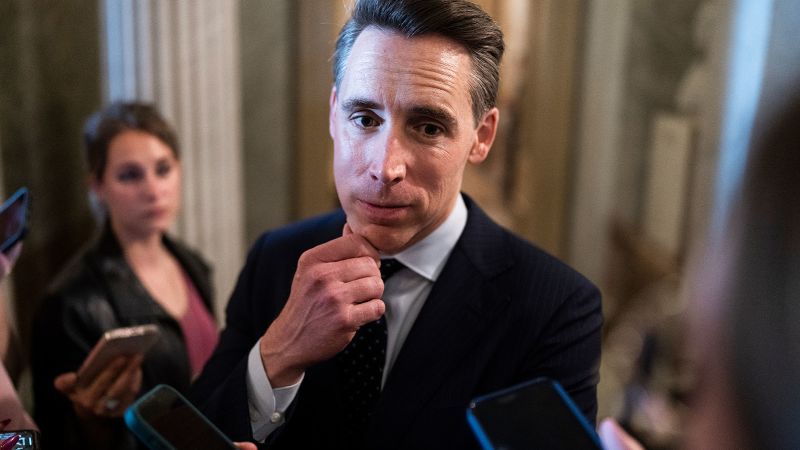In recent developments concerning the Trump administration, several Republican senators have expressed hesitation regarding the potential acceptance of a luxury Boeing 747-8 jet from the Qatari royal family to be used as Air Force One. The concerns raised encompass both security and legal issues, underscoring the complexity of the situation. The discussions have sparked a heated debate within the party as parliamentarians weigh the implications of what accepting such a gift could entail.
Senator Shelley Moore Capito from West Virginia, who also holds a leadership position within the Senate GOP, emphasized the need for the administration to evaluate the constitutionality of the proposed arrangement. Capito remarked on the significant security risks posed by a private jet gifted to the government, stressing that any thorough examination would necessitate looking for potential eavesdropping devices or “bugs.” Her concerns reflect a broader unease among her colleagues regarding this unprecedented transaction.
Adding to the discussion, Senator Josh Hawley from Missouri articulated a preference for the aircraft to be manufactured in the United States, indirectly criticizing the notion of accepting a foreign jet. Similarly, Senator John Kennedy of Louisiana expressed the importance of assessing whether such an acceptance would pass legal scrutiny, reinforcing the notion that adherence to the law is paramount. The skepticism is echoed by other Republican figures, reflecting a diverse range of opinions within the party on this sensitive matter.
The Qatari government has characterized the transaction as a gift from its Ministry of Defense to the Pentagon rather than a personal gift to President Trump. The Pentagon plans to make necessary modifications to the aircraft to ensure it meets security standards for presidential use. While Trump publicly described the Boeing jet as a “GIFT, FREE OF CHARGE,” he underlined that this arrangement would be executed transparently.
In light of these unfolding events, White House press secretary Karoline Leavitt indicated that legal particulars associated with accepting the Qatari jet are still under consideration. She reassured that any governmental donations will adhere to legal requirements. However, the proposal has spurred concerns from ethics experts, who caution that accepting the jet may contravene the Constitution’s Emoluments Clause. This clause explicitly prohibits a president from receiving any benefit or profit from foreign entities unless Congress provides explicit consent.
Amidst the criticism and concerns, not all Republican senators have voiced their disapproval of the proposed arrangement. Senator Tommy Tuberville from Alabama asserted his support, arguing that a legal acceptance would be beneficial economically, given the financial constraints faced by the government. Tuberville, who noted that he had previously flown aboard Air Force One, commented on the aging nature of the current fleet, suggesting that if the transaction is legal, it could save taxpayer dollars.
Senator Markwayne Mullin from Oklahoma dismissed the issue as trivial, expressing no objections to the proposed acceptance. He called into question why this situation draws scrutiny, pointing out that gifts have previously been received from foreign nations. Similarly, Montana Senator Steve Daines stated bluntly that “you can’t beat free,” implying that such a transfer should be embraced if it serves governmental purposes.
Despite the varying perspectives among Republican senators, some, like North Carolina Senator Thom Tillis, acknowledged the necessity for the jet to be properly conveyed to the U.S. government. The legal implications surrounding this offer remain under examination, with various senators indicating a willingness to await the Department of Justice’s guidance.
Senate Majority Leader John Thune underscored the speculative nature of the offer, emphasizing that more information is required before making determinations on the ethical or constitutional ramifications. As discussions progress, the prospect of accepting a luxury jet from a foreign power remains a pivotal topic, reflecting the intersections of governance, ethics, and international relations within contemporary U.S. politics. The outcome of this debate could have lasting implications for both the Trump administration and the broader Republican Party.



